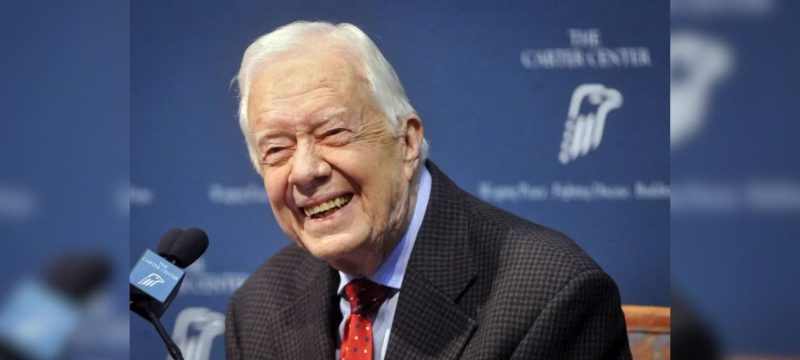Jimmy Carter, the 39th President of the United States and a Nobel Peace Prize recipient, passed away on Sunday at the age of 100 in his hometown of Plains, Georgia. A Democrat, he served a single term from 1977 to 1981, advocating for peace and human rights but facing challenges such as economic instability and the Iran hostage crisis.
Despite his presidency’s mixed record, Carter’s humanitarian efforts post-office earned widespread admiration, culminating in the Nobel Peace Prize in 2002.
Read more: India’s Former Prime Minister Manmohan Singh Passes Away at 92
His leadership during the historic Camp David Accords in 1978 facilitated a groundbreaking peace agreement between Israel and Egypt, hailed as a pivotal moment in Middle Eastern diplomacy. Egyptian President Abdel Fattah al-Sisi lauded his critical role in this achievement.
Carter’s administration, however, struggled with soaring inflation, an energy crisis, and the prolonged Iran hostage crisis, where 52 Americans were held captive for 444 days. These challenges contributed to his defeat in the 1980 election by Republican Ronald Reagan.
After leaving the presidency, Carter focused on humanitarian causes, founding the Carter Center in 1982. The organization worked to promote democracy, monitor elections, and combat diseases worldwide. His efforts in countries like Ethiopia, Haiti, and North Korea solidified his reputation as a global advocate for peace and human rights.
In his later years, Carter battled health challenges, including melanoma, and chose hospice care in February 2023. His wife, Rosalynn Carter, with whom he shared 77 years of marriage, passed away in November 2023. Their enduring love story was a cornerstone of his life.
Public memorials will be held in Atlanta and Washington, with a private burial in Plains. James Earl Carter Jr., born on October 1, 1924, rose from modest beginnings as a peanut farmer to the presidency, leaving a lasting legacy of compassion and dedication to humanity.
World leaders and former U.S. presidents have paid tribute to Carter, with the White House calling him “compassionate, humble, and unwavering in his commitment to peace.” Pakistan’s Prime Minister Shehbaz Sharif also expressed his condolences, extending sympathies to Carter’s family and the American people.









